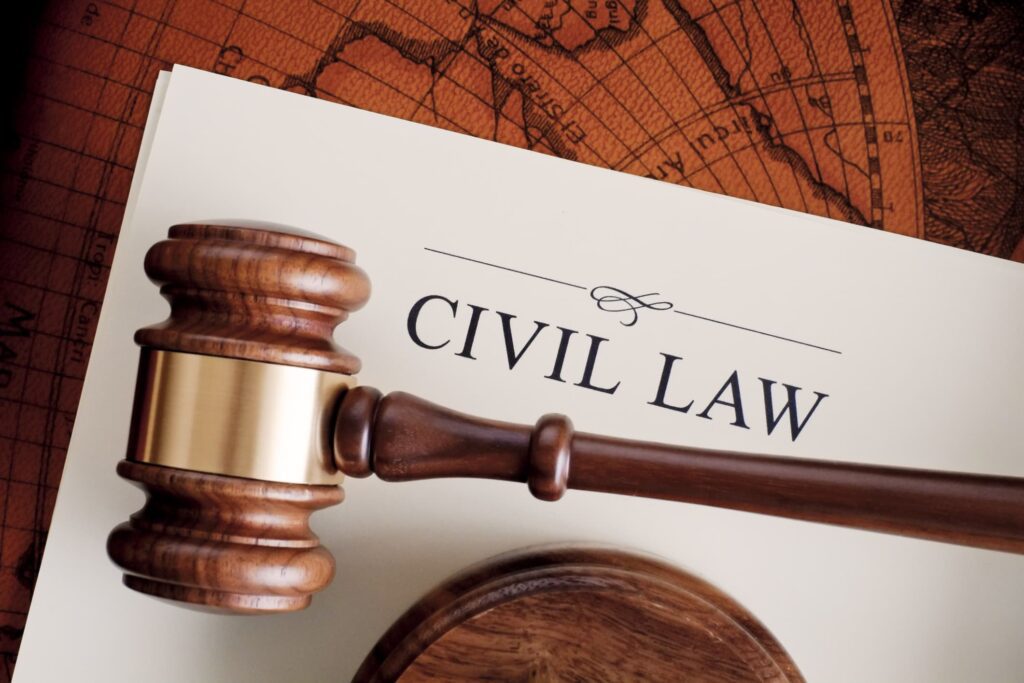For smaller claims, i.e. valued below £10,000 and therefore likely to be allocated to the Small Claims Track, it may not be worth instructing a solicitor. In which case, here are some answers for the most common queries we get in relation to completing the claim form yourself.
The claim form is a document that you must fill out and submit as a claimant when issuing civil proceedings in the County Court or High Court. Usually, this must be done with the standard N1 form which can be found on the gov website alongside some detailed guidance. See here.
What do I need to know before completing my Form?
- Always consider alternative dispute resolution first. (ADR) This may allow you to reach an agreement before going to court. For a pamphlet on this process, see here.
- Your claim may be better suited to ‘Money Claim Online’; if your claim is for a fixed amount less than £100,000, against no more than two defendants (people or organisations) and can be served to a defendant(s) with an English or Welsh address.
- Provided the claim is for a sum of money (not for ‘return of goods’), it should be sent to the Civil National Business Centre, St Katharine’s House, 21-27 St Katharine’s Street, Northampton, NN1 2LH.
- Otherwise, you should send the form and fee to the relevant local court office.
How do I start completing my form?
- Always use black or blue ink and write in block capitals if completing the form by hand!
- Alternatively, you can fill in the form online.
- In the top right corner is the heading.
- You should indicate the name of the court where you want the claim to be issued.
- Claims for less than £100,000 should be issued in the County Court.
- For Personal injury claims, the threshold is claims for £50,000 or less must be commenced in the County Court.
- If you want the claim issued in the County Court, and it is for money only, you should write ‘County Court Money Claims Centre’.
- The claimant is the person issuing the claim. Please ensure that you write your name and address.
- The defendant is the person you are suing. Please ensure that you write their name and address.
What information should I provide about myself and the defendant?
- You must provide the address, including the postcode, for both parties.
- For individuals, you should enter their full name if known, including their title and telephone number.
- Where the defendant is a proprietor of a business or similar, the address for service should be their normal or last known residence, or usual place of business.
What should I include if one of the parties is a registered company?
- If one of the parties is a registered company or limited liability partnership, you should write the full name followed by the correct suffix. I.e. ‘Ltd’. This should be followed by an address and postcode which is ideally the company’s registered office.
What should I put under ‘brief details of claim’?
- You should write a clear and concise statement outlining your claim.
- This should include the remedy you are seeking from the court. (E.g. payment of money)
What needs to be written in ‘Value’?
- If you are claiming a specific amount of money, write the amount in the bottom corner next to ‘amount claimed’.
- If you are instead claiming an unspecified amount of money, write under ‘value’, ‘I expect to recover’ followed by one of the following:
- ‘not more than £10,000’ or
- ‘more than £10,000 but not more than £25,000’ or
- ‘more than £25,000’
- If none of the above are appropriate, you should put ‘I cannot say how much I expect to recover’.
What if I am making a personal injury claim?
- If your personal injury claim is for ‘not more than £5,000’ and includes a claim for personal injuries, you should write under ‘value’, ‘My claim includes a claim for personal injuries and the amount I expect to recover as damages for pain, suffering and loss of amenity is’ and then either:
- ‘not more than £1,000’ or
- ‘more than £1,000’
What if I am making a housing disrepair claim?
- If you are claiming ‘not more than £5,000’ and this includes a claim for housing disrepair relating to residential premises, you should further include ‘My claim includes a claim against my landlord for housing disrepair relating to residential premises. The cost of the repairs or other work is estimated to be’ and then either:
- ‘not more than £1,000’ or
- ‘more than £1,000’
What should I do if I am asked to send my claim to a court centre that is difficult to attend?
- If attendance is mandatory, then the court may transfer the claim to make it more accessible for one of or all parties to attend. The court will take it into account if transfer is required.
- A full list of County Courts hearing centres is linked here: https://www.gov.uk/find-court-tribunal
What does ‘Legal representative’s costs’ mean?
- These monies may only be claimed where a legal representative has been instructed on your behalf to make the claim.
What needs to be written under ‘Particulars of Claim’?
- A succinct statement of the facts and background upon which you will rely.
- Full details of any legal interest for which you will be claiming.
- Any other information required for your type of claim as set out in corresponding practice direction.
- These can be quite exhaustive, see here, which is why we are here to help!
What does ‘Statement of Truth’ mean?
- This section will need to be completed by either you or your legal representative.
- If the claimant is a registered company, this must be signed by either the director or similar officer of the company, duly authorised to do so.
- Before signing the Statement of Truth, you should satisfy yourself that the contents of the Particulars of Claim are as accurate as possible, as there can be unfortunate consequences if you sign such a statement without an actual belief in the truth of it.
Making a claim can be a deceptively difficult process to navigate, in which case we are happy to guide you through the process. Please call us on +441582 383 888 or request a call back if you require assistance making a claim.



